Sliding scale pricing options
TMS For Sleep
Non-invasive relief for sleepless nights - especially when anxiety or depression are involved.
In
30
Seconds

Chronic insomnia affects up to 40% of adults and often co-occurs with depression or anxiety.

TMS has shown promising results for improving sleep quality in multiple clinical studies.

Inspire TMS offers personalized care for sleep-related concerns, often covered when paired with depression treatment.
How TMS Supports Better Sleep
Insomnia is more than a restless night - it often spirals into mood issues, brain fog, irritability, and fatigue. It’s also one of the most common symptoms in depression, anxiety, and other neuropsychiatric conditions.
At Inspire TMS, we use
Transcranial Magnetic Stimulation (TMS) to gently stimulate brain areas involved in mood regulation and sleep, helping patients break the cycle of chronic insomnia, especially when other treatments haven’t worked.
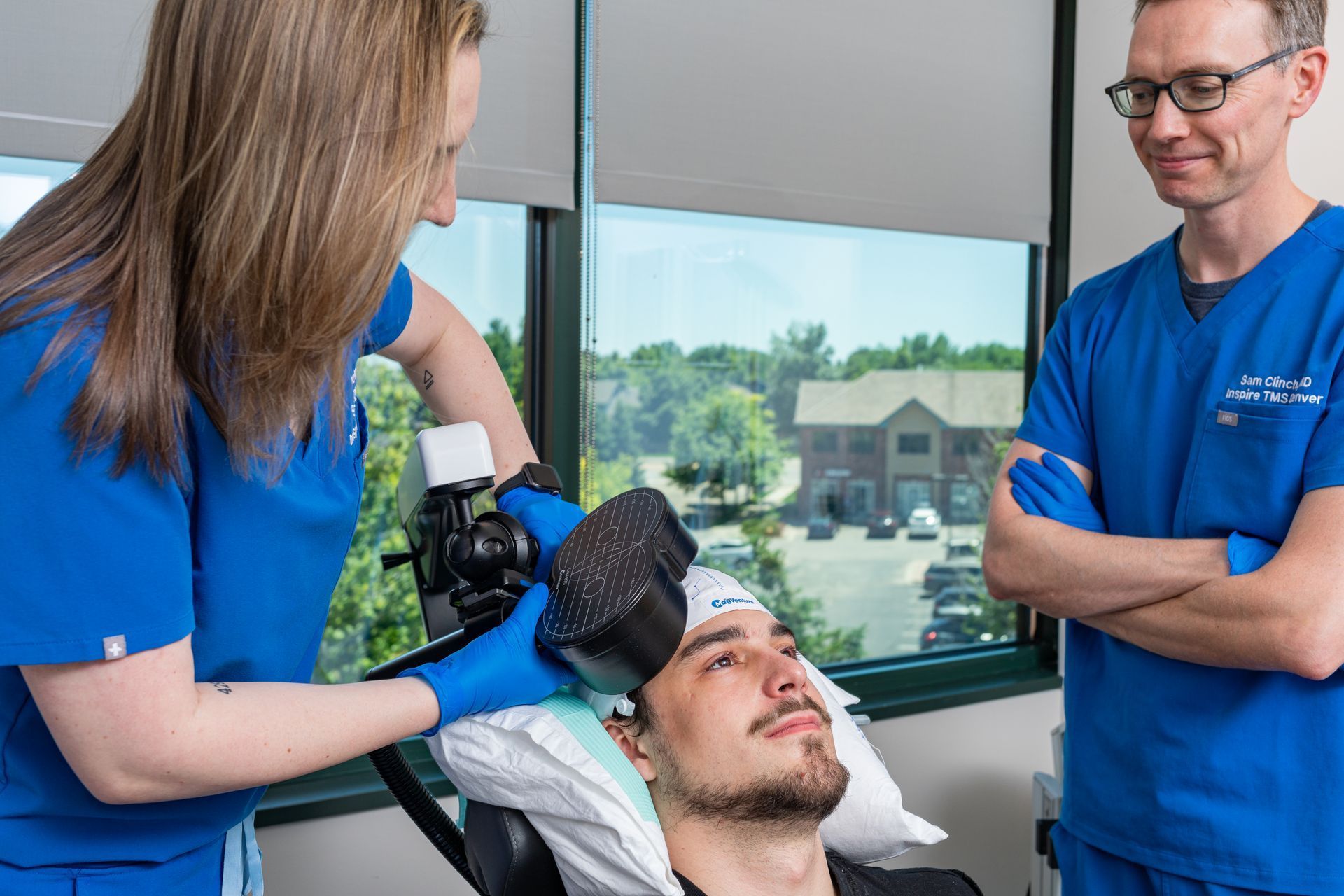

How It Works
While TMS for insomnia is not currently FDA-approved, many patients experience better sleep as a secondary benefit of treating depression or anxiety, which is FDA-approved and insurance-covered.
We offer:


Personalized consultation and treatment plans

Off-label treatment for insomnia when appropriate
What the Research Says
Recent studies show rTMS may improve:
- Total Sleep Time
- Sleep Efficiency & Onset
- Fewer Nighttime Awakenings
- Reduced Anxiety & Cortisol (stress hormone)
- Improved REM & Slow-Wave Sleep
TMS is particularly effective when insomnia stems from:
- Depression
- Generalized Anxiety Disorder (GAD)
- Restless Leg Syndrome (RLS)
- Parkinson’s
- Chronic pain
- Substance use recovery
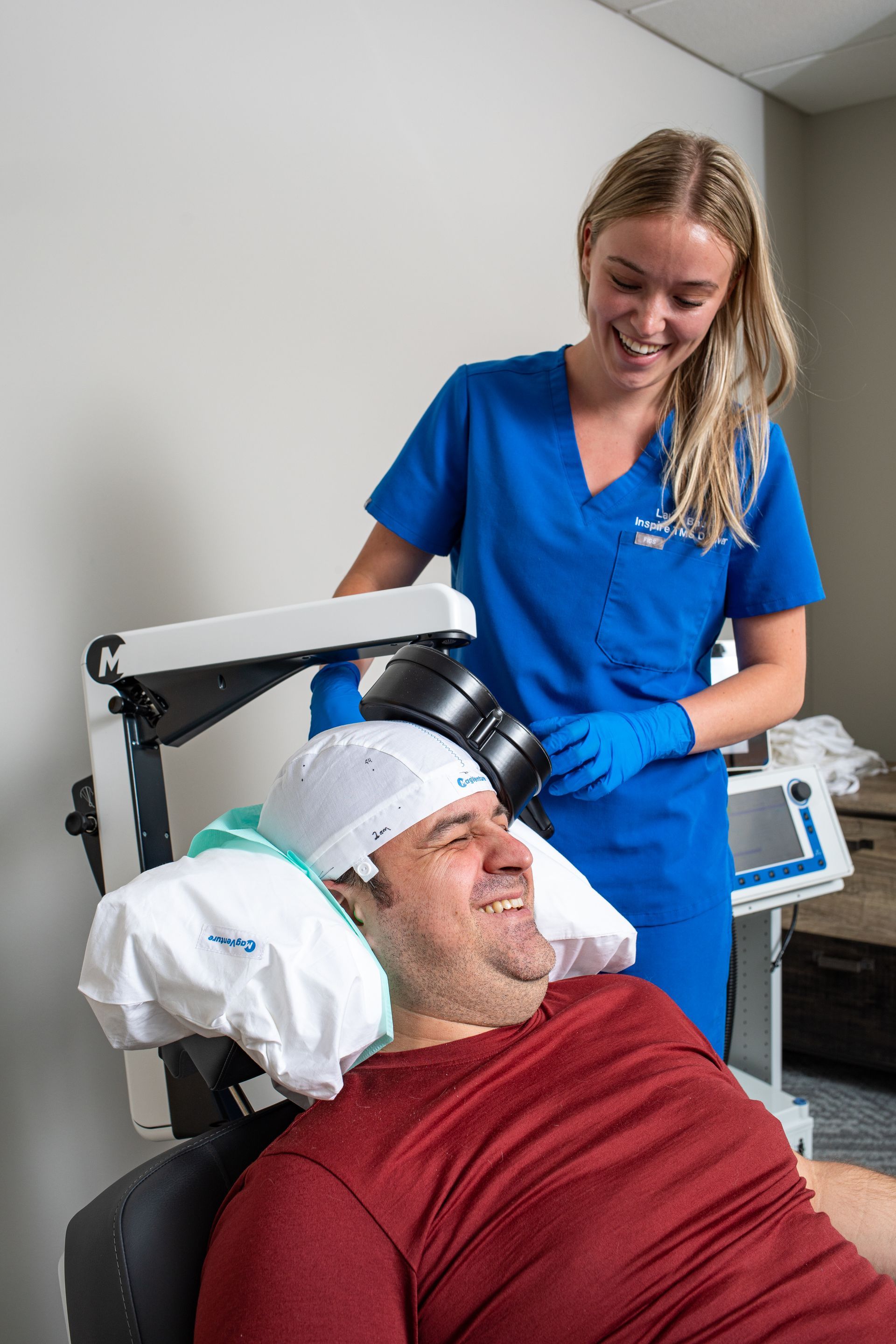
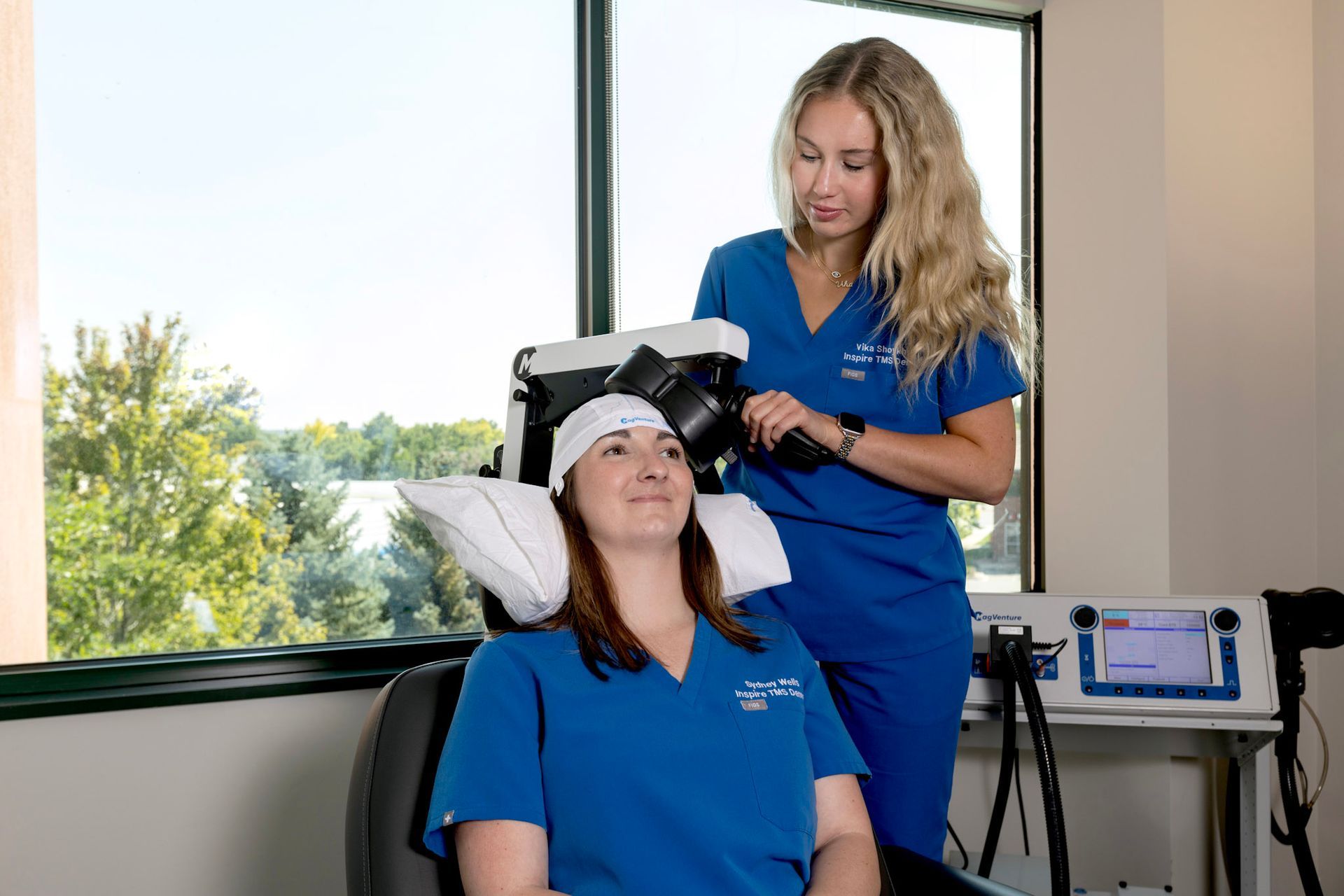
Patient-First Approach
During your initial consultation, we’ll assess whether TMS is right for your specific sleep issues. If insomnia is related to another condition like depression or anxiety, insurance coverage may apply. You’ll receive a personalized treatment roadmap and compassionate support throughout the process.
Not Sure Where to Start?
Take a quick quiz to get answers about your care options, coverage, and costs - in under 2 minutes.

Is TMS Right for Me?
Find out if TMS is a good fit for your symptoms and treatment history.

Quick 9-question screening

No pressure, no commitment

Personalized feedback

TMS Cost Estimator
Curious about your insurance coverage or out-of-pocket costs?

Coverage check

Self-pay pricing options

Sliding scale

Sliding scale

Talk to a Doctor
Free 10–15 Min Call
Find out if TMS is a good fit for your symptoms and treatment history.

Eligibility & treatment info

Insurance & cost guidance

Personalized care advice
Our shared inspiration is to alleviate mental illness and improve the mental wellbeing of the patients we treat. We respect all backgrounds and cultures and want to hear our patient’s stories to best guide care. During treatment, we reinforce positive wellness practices, help maximize lifestyle modifications, and integrate rTMS therapy into a patient’s overall mental and physical health treatment.
Samuel B. Clinch, M.D
Medical Director

Services & Resources

Us vs Them
What sets Inspire TMS apart from typical TMS providers
Inspire TMS Denver
Sliding Scale Pricing Available
5-day Accelerated TMS Protocol
10–15 min call with Doctor
Focused Exclusively on TMS
>80% Clinic Response Rate
Cost Estimator Tool
15,000+ Treatments Completed
Other Clinics
Fixed Pricing Only
Often Unavailable
Long Wait or Intake Staff Only
Larger Multi-Service Clinics
Unpublished or National Data
No estimator or Guidance
Unknown Volume
Hear What Our Patients are Saying
40+ Five Star Reviews on TMS Therapy In Denver, Colorado
Making TMS Affordable For Everyone
We believe cost should never be a barrier to effective care. That’s why we offer:

Sliding scale pricing for self-pay patients

Coverage with most major insurance providers

Easy access to third-party financing options

Free 10–15 minute consultation to get started
Why Choose Inspire TMS Denver
We combine clinical expertise with a personalized, patient-first approach. From board-certified care and flexible pricing to proven treatment outcomes, we’re here to help you find lasting relief - with support every step of the way.

Affordability Made Simple
Insurance, Financing & Sliding Scale Options
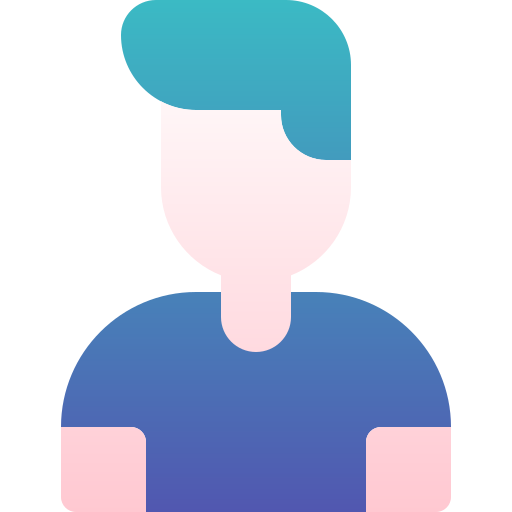
Board-Certified Psychiatrist
Over 10 Years of Clinical Experience

Fast-Track TMS Option
5-Day Protocol for Faster Relief

Proven Patient Outcomes
Success Rates Tracked In-Clinic

Free Doctor Consultation
No Obligation, 10–15 Minute Intro Call

Personalized Care Plans
Tailored TMS Treatment for Every Patient
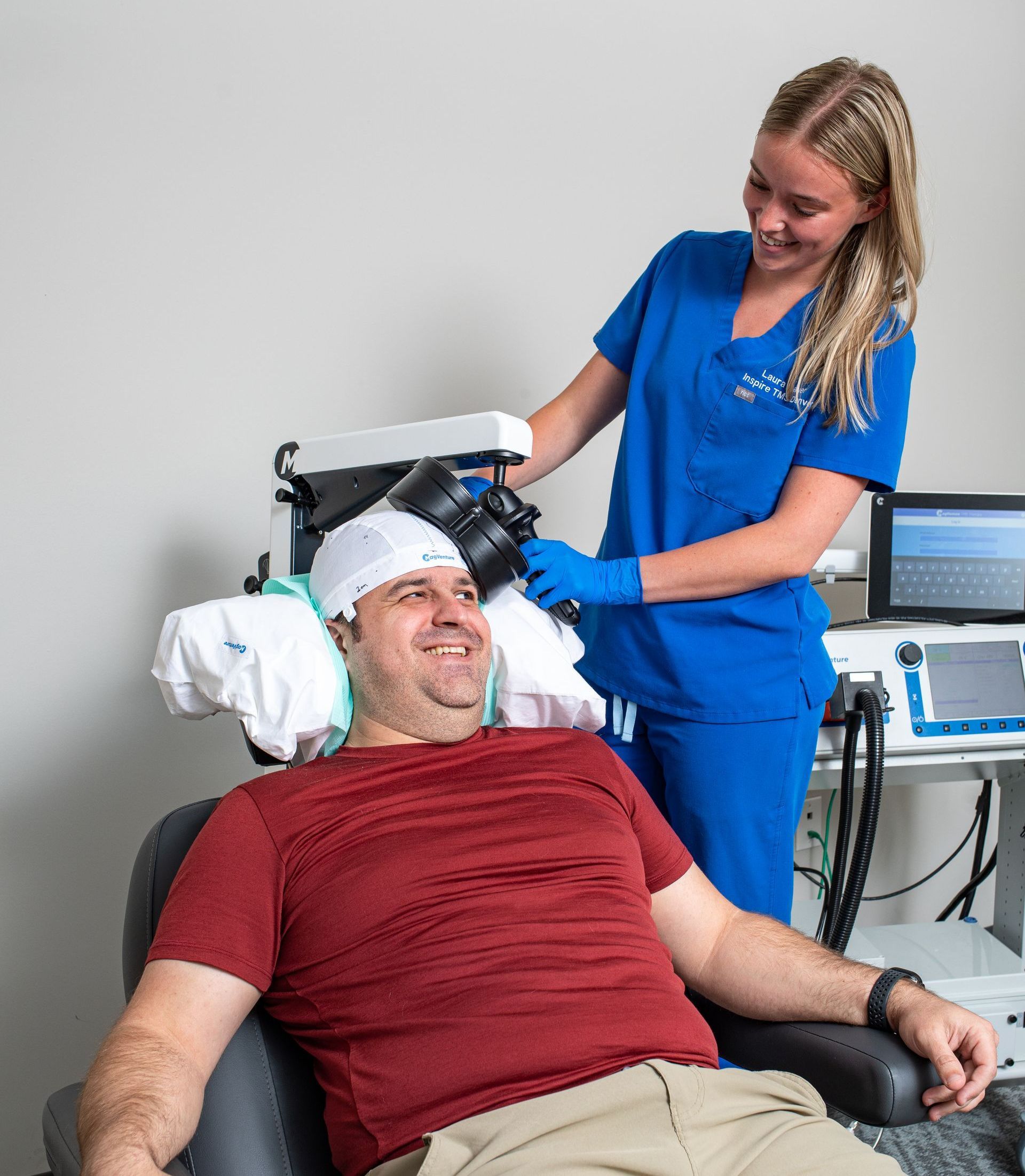
Your Free Consultation
Call us at 720-446-8675 or complete the form below.
Contact Us
We will get back to you as soon as possible.
Please try again later.

What Happens After I Send My Message?

A team member will confirm your free consultation within one business day

We’ll help you explore if TMS is right for you

You’ll get answers to your questions about treatment, eligibility, and cost







